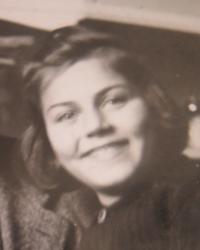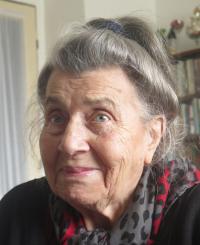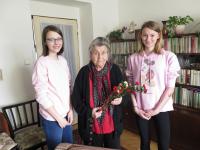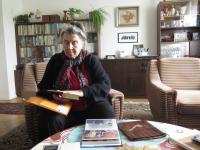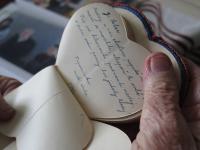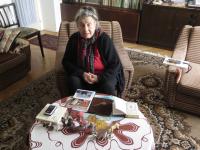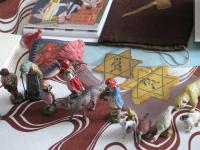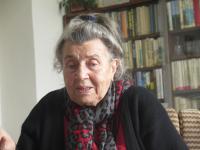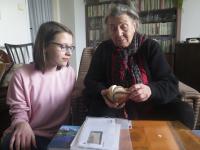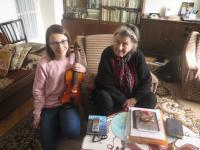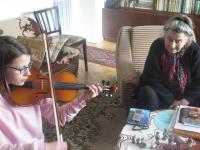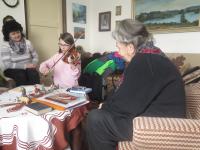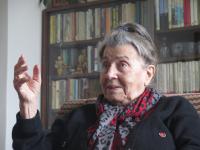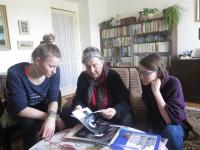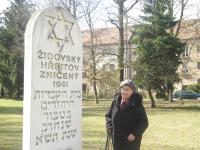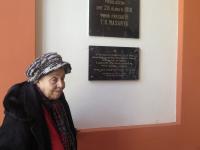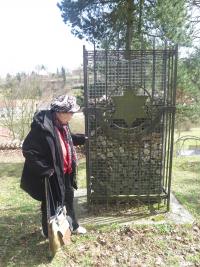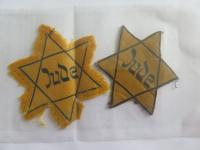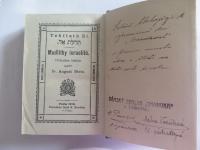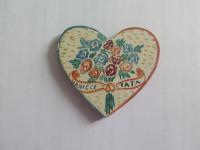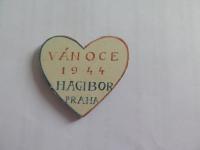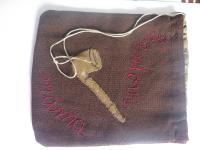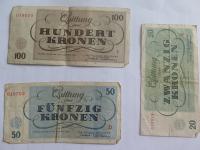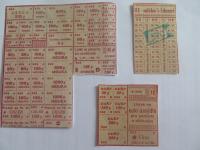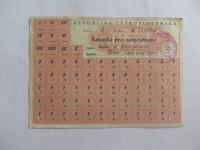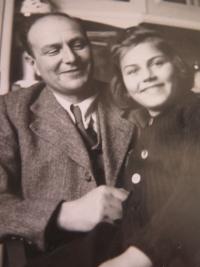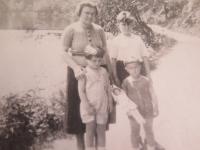Speak the truth and nothing else than the truth
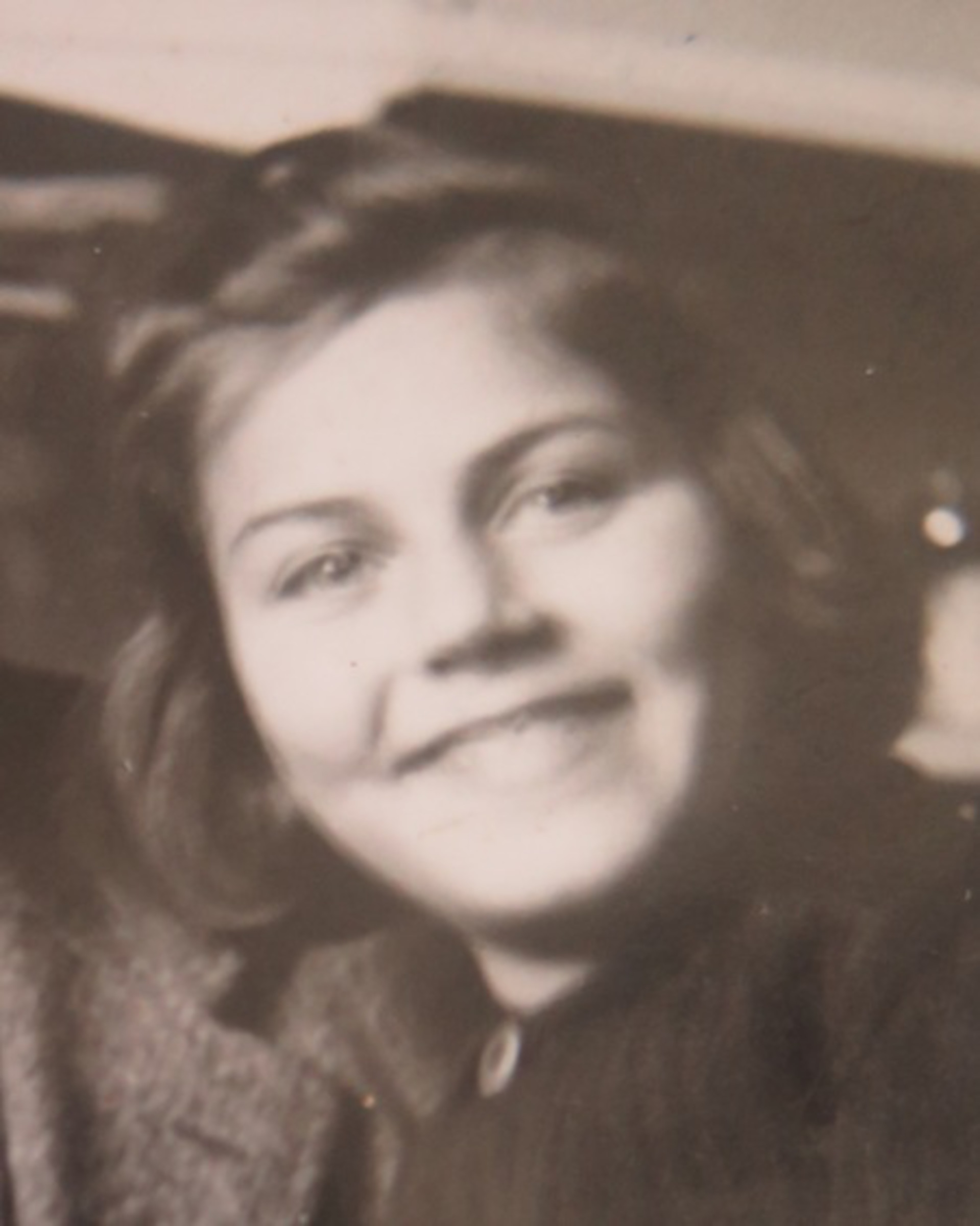
Download image
Hana Jančíková, née Goldsteinová, was born on November 19, 1932 in Tábor into a mixed Czech-Jewish family. Her mother Ludmila was a tailor for men’s clothing by trade, and her father Karel was an accountant. Her parents did not force any religion on little Hana in order to enable her to choose her faith herself once she became an adult. Hana attended girls’ higher elementary school in Tábor from 1939. The Nazis later established an assembly place for Jews from Tábor before their transports to Terezín in this school building. In 1942, two of her father’s three sisters, Jarmila Goldsteinová from Tábor and Růžena Voglová from Prague with her husband and two sons, went to Terezín. They all perished in Auschwitz. Their third sister Ludwika Goldsteinová has survived the concentration camps. Due to her father’s Jewish origin, Hana was expelled from school in 1944. In October 1944 her father was summoned to transport to Hagibor and in January 1945 he went with a transport to Terezín, and from there they escaped together with other prisoners at the beginning of May 1945 to Prague and subsequently to Tábor. Altogether the family has lost about twenty of their relatives during the war. After the war, Hana studied a secondary school in Tábor for three years and then she transferred to Karlovy Vary where she qualified a ceramist. After completing a distance study and passing the final examinations in Sezimovo Ústí she attained qualification as a kindergarten teacher in Prachatice. Working in kindergartens eventually became her lifelong profession. She also joined the Girl Scouts after the war and later she was a leader of a troop of Pioneers. Her husband was a professional soldier and when he was expelled from the Communist Party, Hana became a member of the Party instead so that their children would be allowed to study. In 2003 she established the civic association Hadasa. She died on March 10, 2024.
